
Exercise psychologist; affect & emotion researcher. Tweets about the link b/w exercise and pleasure/displeasure, and the role of exercise in mental health.
2 subscribers
How to get URL link on X (Twitter) App



 Let's start from this. Imagine that you bring together the world's best physical activity epidemiologists, experts in physical activity assessment, exercise physiologists, and sports medicine physicians. You put them in a room at the @WHO headquarters and ask them to develop the next physical activity guidelines. What are they going to come up with?
Let's start from this. Imagine that you bring together the world's best physical activity epidemiologists, experts in physical activity assessment, exercise physiologists, and sports medicine physicians. You put them in a room at the @WHO headquarters and ask them to develop the next physical activity guidelines. What are they going to come up with?

 This is the meta-analysis in question, supposedly summarizing RCTs examining the effects of exercise in patients with chronic renal failure. Note that the APC for "BioMed Research International" is $2,550.
This is the meta-analysis in question, supposedly summarizing RCTs examining the effects of exercise in patients with chronic renal failure. Note that the APC for "BioMed Research International" is $2,550. 
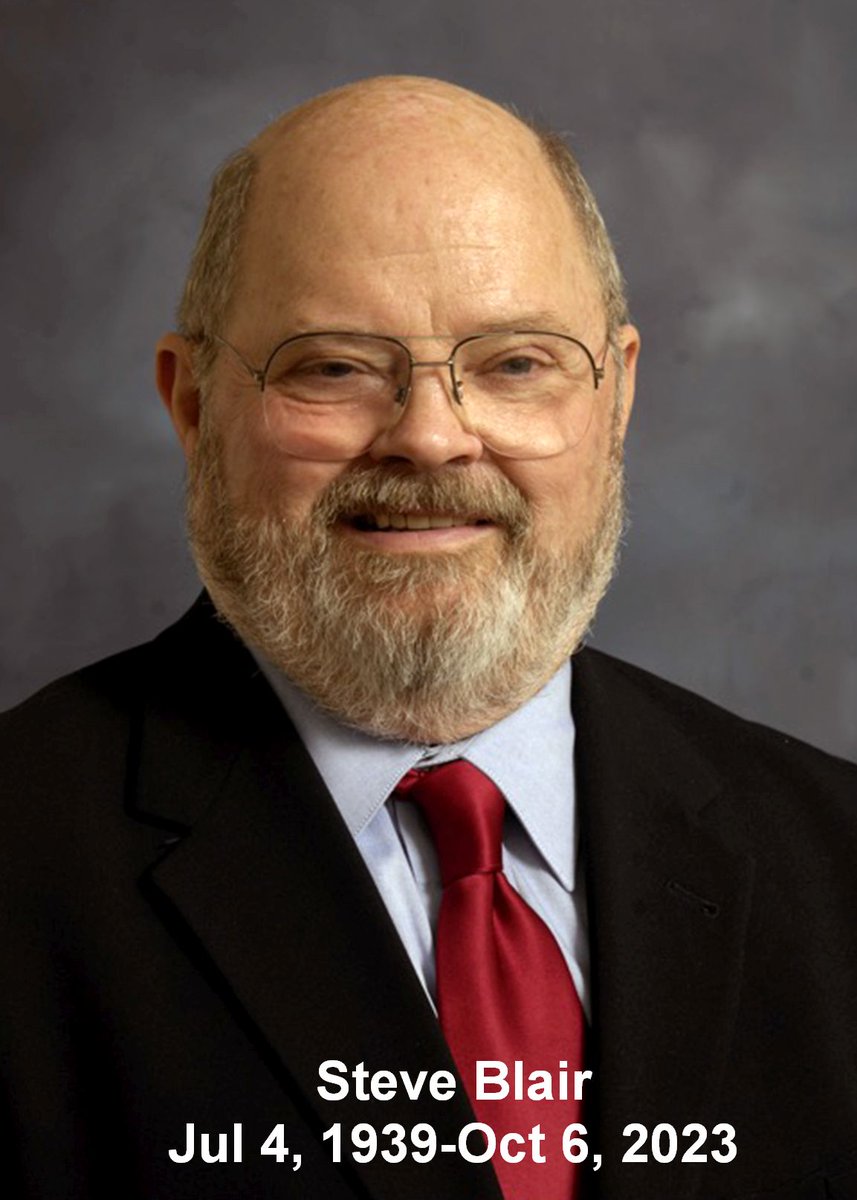
 In my mind, Blair was the last of the trio of physical activity epidemiologists that gave our field a prominent place in contemporary medicine and public health. We lost Jerry Morris on Oct 28, 2009. We lost Ralph Paffenbarger on Jul 9, 2007. We lost Steve Blair on Oct 6, 2023.
In my mind, Blair was the last of the trio of physical activity epidemiologists that gave our field a prominent place in contemporary medicine and public health. We lost Jerry Morris on Oct 28, 2009. We lost Ralph Paffenbarger on Jul 9, 2007. We lost Steve Blair on Oct 6, 2023. 

 The first thing to note is that these headlines are happening against the backdrop of tremendous activity in the dementia field following the flop of Aducanumab (Aduhelm). Now, there is lecanemab, also a monoclonal antibody, with similar side-effects (brain swelling, bleeding).
The first thing to note is that these headlines are happening against the backdrop of tremendous activity in the dementia field following the flop of Aducanumab (Aduhelm). Now, there is lecanemab, also a monoclonal antibody, with similar side-effects (brain swelling, bleeding). 

 In this paper, @NBTiller and I address the increasing prevalence of "spin" by examining 4 extraordinary claims that appeared in the HIIT research literature and subsequently made a splash as media headlines. We dissect the underlying research used as the basis for these claims.
In this paper, @NBTiller and I address the increasing prevalence of "spin" by examining 4 extraordinary claims that appeared in the HIIT research literature and subsequently made a splash as media headlines. We dissect the underlying research used as the basis for these claims. 

 So, your stomach would be correct. Let's set aside for a moment that expecting 50% superiority from an 8-week intervention is kind-of ludicrous. Since 50% of 15 is 7.5, comparing 15±5 to 22.5±5 gives d=0.61, which requires 43 per group (not 8) to reach 80% power.
So, your stomach would be correct. Let's set aside for a moment that expecting 50% superiority from an 8-week intervention is kind-of ludicrous. Since 50% of 15 is 7.5, comparing 15±5 to 22.5±5 gives d=0.61, which requires 43 per group (not 8) to reach 80% power. 

 In fact, this is so confusing (& goes so much against common sense) that you can use this as a "litmus test" to differentiate those who know affective psychology from those who are opportunistically jumping on the affect bandwagon because affect happens to be the flavor du jour.
In fact, this is so confusing (& goes so much against common sense) that you can use this as a "litmus test" to differentiate those who know affective psychology from those who are opportunistically jumping on the affect bandwagon because affect happens to be the flavor du jour.

 What did the meta find? (1) The worst you'll feel during SIT does not differ from the worst you'll feel during moderate-intensity continuous exercise (MICE), and (2) enjoyment of SIT and MICE does not differ.
What did the meta find? (1) The worst you'll feel during SIT does not differ from the worst you'll feel during moderate-intensity continuous exercise (MICE), and (2) enjoyment of SIT and MICE does not differ. 



 I think it's fair to say that few people have been able to read (and understand) Bandura from the original. Most know Social Learning Theory and Social Cognitive Theory from simplified and abbreviated secondary sources. His language seems wordy but is densely packed with meaning.
I think it's fair to say that few people have been able to read (and understand) Bandura from the original. Most know Social Learning Theory and Social Cognitive Theory from simplified and abbreviated secondary sources. His language seems wordy but is densely packed with meaning. 



 Kuhn predicted that paradigm change will come from iconoclasts and "mavericks": "being little committed by prior practice to the traditional rules of normal science, [they] are particularly likely to [...] conceive another set that can replace them."
Kuhn predicted that paradigm change will come from iconoclasts and "mavericks": "being little committed by prior practice to the traditional rules of normal science, [they] are particularly likely to [...] conceive another set that can replace them." 
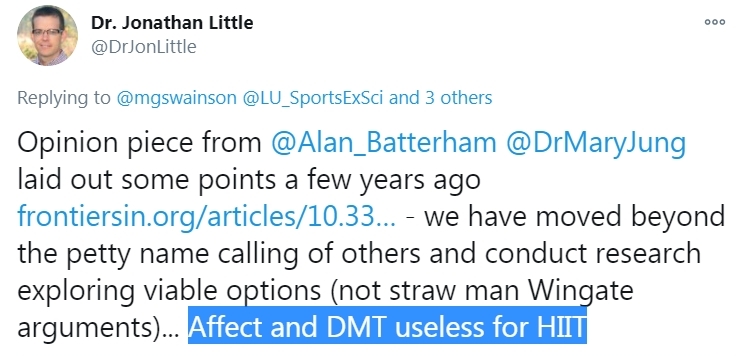
 Let's start from some basic points. First, the "debate" over HIIT is not really about "options" or about public health in general. As explained in a recent thread (see link), nearly all people avoid vigorous-intensity (let alone "high-intensity") activity.
Let's start from some basic points. First, the "debate" over HIIT is not really about "options" or about public health in general. As explained in a recent thread (see link), nearly all people avoid vigorous-intensity (let alone "high-intensity") activity. https://twitter.com/Ekkekakis/status/1321287090315972609
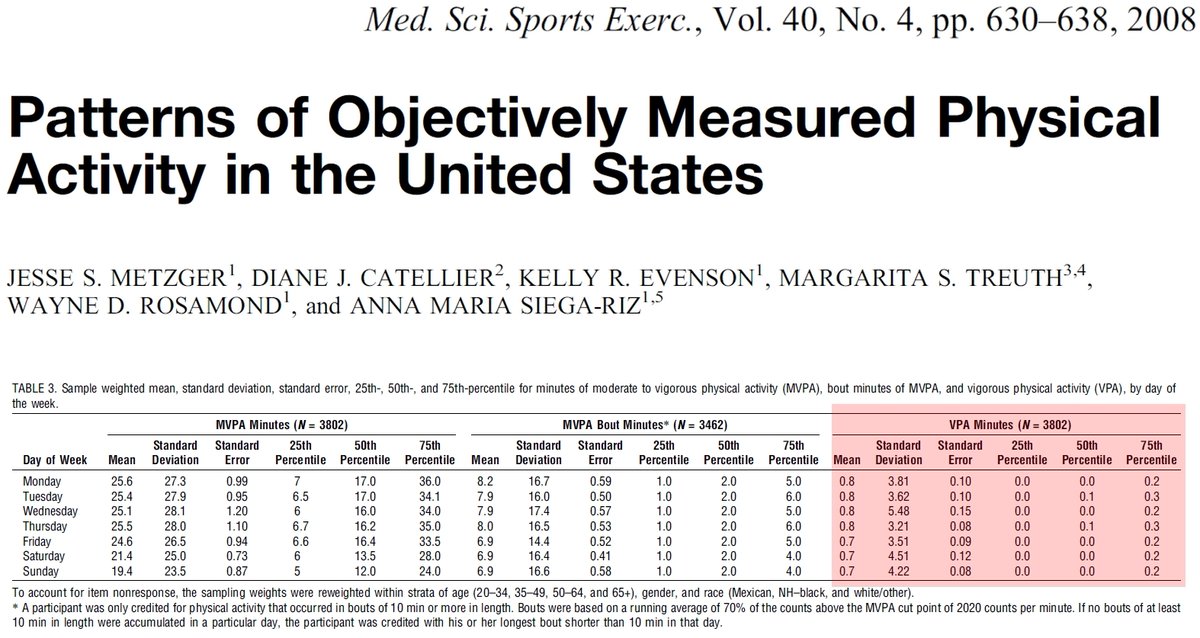
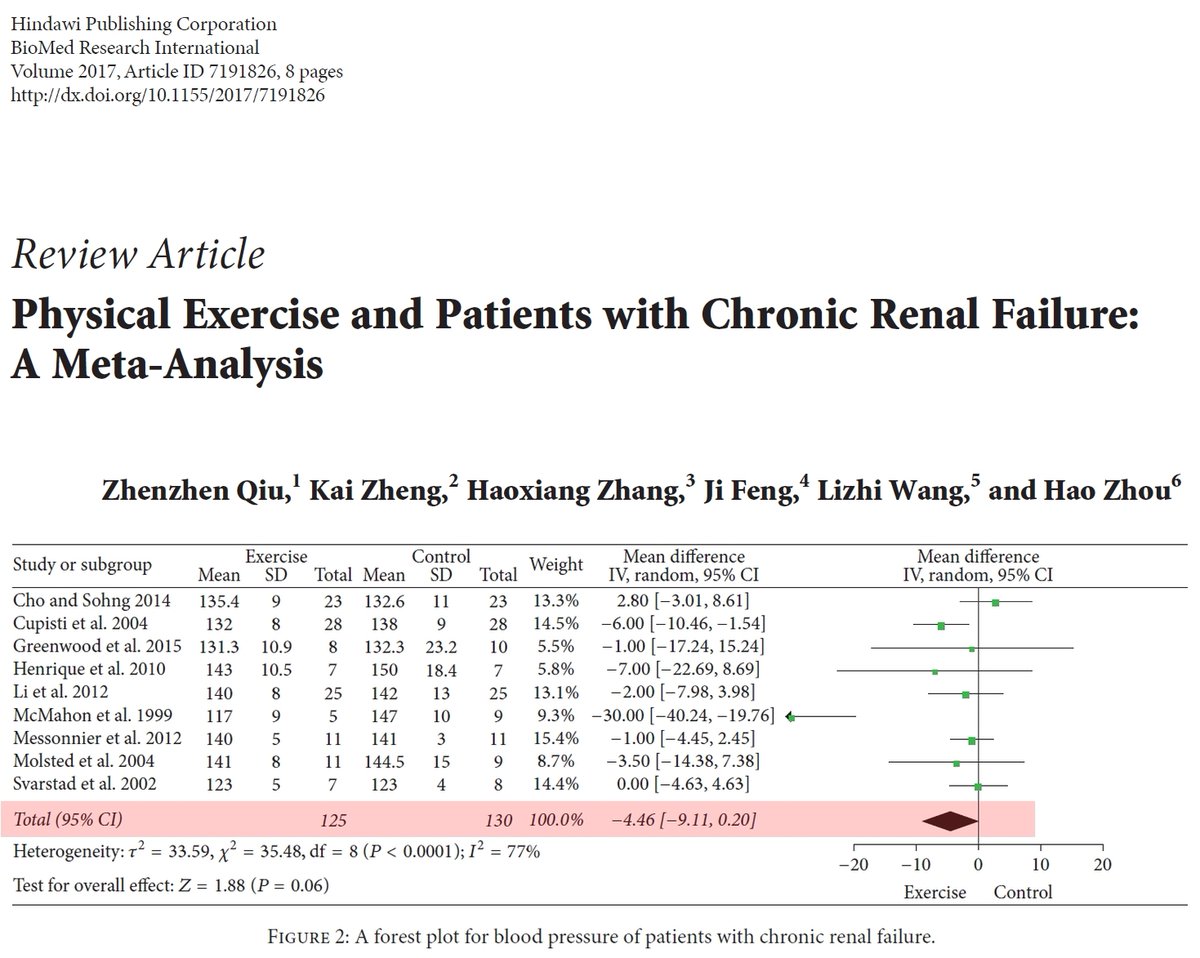
 The paper is published in "BioMed Research International," a @Hindawi journal indexed in PubMed, and has been cited 39 times in 3 years as having shown that exercise benefits patients with end-stage renal disease (e.g., see below). pubmed.ncbi.nlm.nih.gov/28316986/
The paper is published in "BioMed Research International," a @Hindawi journal indexed in PubMed, and has been cited 39 times in 3 years as having shown that exercise benefits patients with end-stage renal disease (e.g., see below). pubmed.ncbi.nlm.nih.gov/28316986/ 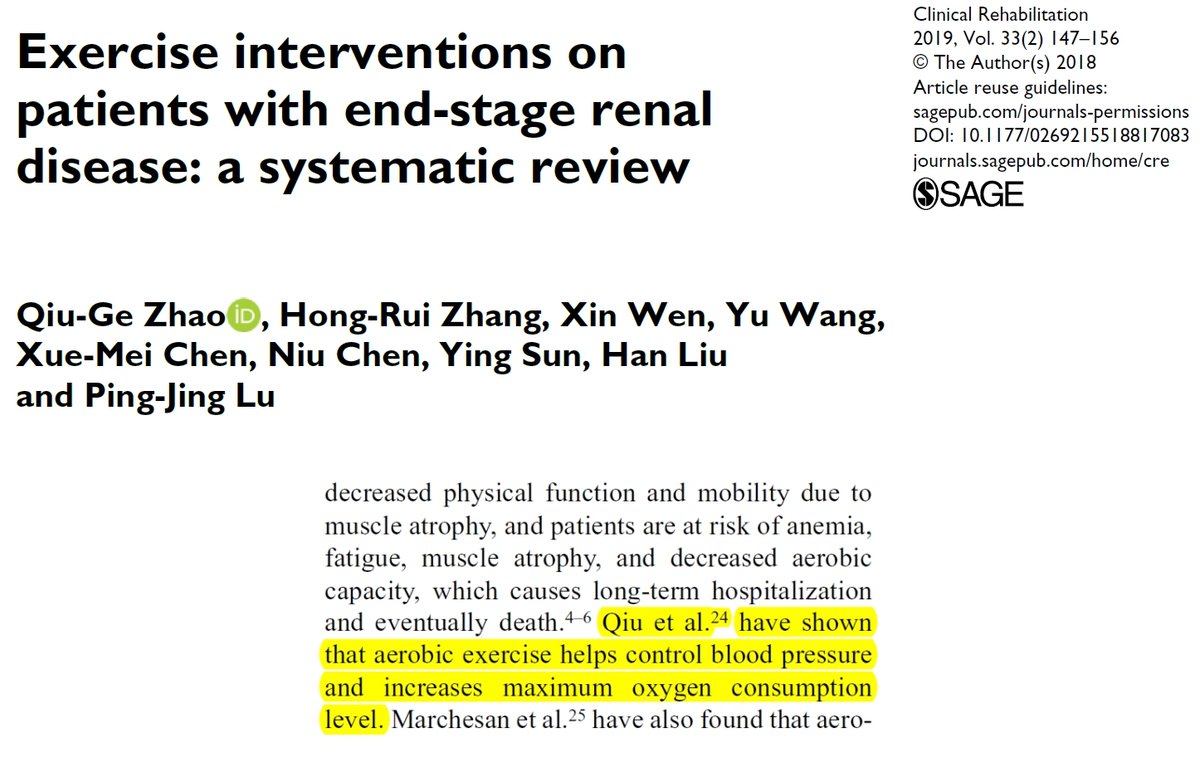

 Let's begin with the argument that vigorous/high intensity is needed because it provides "time-efficient" physical activity options, & time efficiency is the answer to the primary barrier to PA participation, namely "lack of time." The argument is popular for the past 15-20 years
Let's begin with the argument that vigorous/high intensity is needed because it provides "time-efficient" physical activity options, & time efficiency is the answer to the primary barrier to PA participation, namely "lack of time." The argument is popular for the past 15-20 years 

 The first thing to check is the participants. Look for signs that the participants were not exercise-science students of the researchers. Usually, such students already know what the researchers want to find, have seen their videos online, and their posters on the walls.
The first thing to check is the participants. Look for signs that the participants were not exercise-science students of the researchers. Usually, such students already know what the researchers want to find, have seen their videos online, and their posters on the walls.



 If you catch yourself thinking that, to change someone's "affective determinants of behavior," all you need to do is TELL someone that she or he will feel better when they exercise, please stop. And read our chapter, in which we try to clear the confusion.
If you catch yourself thinking that, to change someone's "affective determinants of behavior," all you need to do is TELL someone that she or he will feel better when they exercise, please stop. And read our chapter, in which we try to clear the confusion.